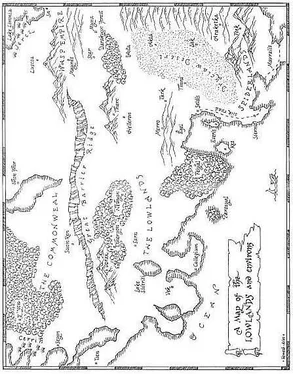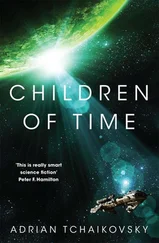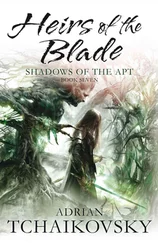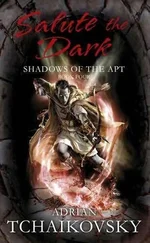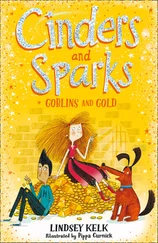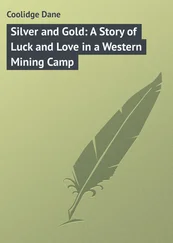Adrian Tchaikovsky - Empire in Black and Gold
Здесь есть возможность читать онлайн «Adrian Tchaikovsky - Empire in Black and Gold» весь текст электронной книги совершенно бесплатно (целиком полную версию без сокращений). В некоторых случаях можно слушать аудио, скачать через торрент в формате fb2 и присутствует краткое содержание. Жанр: Фэнтези, на английском языке. Описание произведения, (предисловие) а так же отзывы посетителей доступны на портале библиотеки ЛибКат.
- Название:Empire in Black and Gold
- Автор:
- Жанр:
- Год:неизвестен
- ISBN:нет данных
- Рейтинг книги:4 / 5. Голосов: 1
-
Избранное:Добавить в избранное
- Отзывы:
-
Ваша оценка:
- 80
- 1
- 2
- 3
- 4
- 5
Empire in Black and Gold: краткое содержание, описание и аннотация
Предлагаем к чтению аннотацию, описание, краткое содержание или предисловие (зависит от того, что написал сам автор книги «Empire in Black and Gold»). Если вы не нашли необходимую информацию о книге — напишите в комментариях, мы постараемся отыскать её.
Empire in Black and Gold — читать онлайн бесплатно полную книгу (весь текст) целиком
Ниже представлен текст книги, разбитый по страницам. Система сохранения места последней прочитанной страницы, позволяет с удобством читать онлайн бесплатно книгу «Empire in Black and Gold», без необходимости каждый раз заново искать на чём Вы остановились. Поставьте закладку, и сможете в любой момент перейти на страницу, на которой закончили чтение.
Интервал:
Закладка:
The road to Shona was many days towards the front, and Sfayot could only guess as to how much faster Ban and his captive were travelling. He examined keenly every slaver troop that passed back towards the Empire, seeking a head of white hair. Slaves a-plenty there were, and a few dozen of his kinden, but none was his daughter.
Shon Aere, as was, had been torn up by the roots. Not a sign of any Dragonfly buildings remained, and the fields had been churned up by war and marching feet. Now there was a veritable city there of tents and shacks and lean-tos. A large proportion of the Imperial Third was currently billeted there, either waiting to take the few days’ march to the current fighting, or else taking a rest from the front. Shona was no simple soldiers’ camp but a Consortium town, it quickly became clear. Here the Empire’s merchants set about the business of fleecing the Empire’s soldiers of their pay and their booty.
It was growing dark by the time that Sfayot arrived at the tent-town’s edge, but he had been able to hear Shona for miles: the sound of an army off duty and riotous with it. The guards who stopped him had the surly, miserable expressions of men on punishment detail, and a gratis jug of wine bought more ready admittance than all the papers in the world.
He saw three fights before he had gone thirty yards, all of them between Wasps and one of them clearly fatal. The makeshift, mud-rutted street he walked down was lined with taverns, gaming houses and brothels, or so the signs outside various tents advertised. Soldiers were everywhere, most out of armour, but Wasps were never unarmed. The expressions on those faces were almost desperate, determined to lose themselves in any vice rather than think about what tomorrow might bring.
Further progress with the cart was going to be impossible, Sfayot saw. He sold it and most of his remaining stock to a taverner, and for a price that told him just how much the soldiers were being overcharged. He retained as many jugs as he could safely string from his belt or bed down in his pack, because his bribing work was surely not done yet.
He made for the centre of Shona, adopting a careful, skulking walk that put him beyond the notice of the rowdy Wasps. Malic had not been entirely wrong in his characterization of the Roach-kinden people. They had a knack for hiding and for stealth born of long years of spite from most other races.
He could see (for Roach eyes were good in the dark) that the centre of Shona, perhaps the entire original area occupied by Shon Aeres itself, was an open square, and that there was some manner of entertainment there. Vague, wild strains of music drifted towards him, and he followed them around the edge of a crowd until he saw a set of mismatched Grasshopper-kinden minstrels plucking and piping as best they could, enduring the occasional kick and missile from the jostling crowd. The square boasted a series of raised wooden platforms, Sfayot saw, and on the nearest there were women dancing. They wore rags only, and he soon saw why: when any of them got too close to the crowd, hands reached for them to tear off whatever remained. An old, bald Wasp with a pike kept watch, and jabbed at them when they clustered too close to the centre. They were Dragonfly-kinden all, with that people’s slender grace and elegance, and they wept and shook and went on dancing, unfettered and with the wide sky above them, and for a long time Sfayot could not understand why they did not simply fly free and risk the Wasp stings.
He saw, at last: at one edge of the platform was an unexpected row amongst the audience: a dozen children sat cross-legged there, some crying, some stony faced and blank eyed. They watched, he saw: they watched their mothers or sisters humiliated for the pleasure of their captors. They themselves would be too young to have learned their airborne Art, and their presence held their relatives in captivity more surely than locks and chains. Sfayot felt ill, and shouldered on past this spectacle. Other platforms boasted fighters, men and women hobbled, bound together, forced to fight each other, or to fight beasts. He saw a nine-foot dragonfly, its wings mere broken stubs, slicing savagely into a pair of unarmed Grasshopper women with its razor mandibles. He saw a tethered, raging Mantis-kinden, one eye put out and the rest of her face a mask of blood, kill slave after slave in a heedless, mindless frenzy, carving each up with the spines of her arms until an officer flew from the crowd and seared her with the bright fire of his sting. The expression on the officer’s face as he killed her was the only compassion Sfayot was to see that night.
Eventually he could take no more. He found a Consortium counting house and took refuge in it, buying his tenure with wine. He was shaking, he found. His family had been right. He was losing all hope of seeing his errant daughter again, or whatever the war had left of her.
The clerk left minding the coffers, whilst his master revelled, was a young Beetle-kinden man named Noles Mender, obviously not long away from home, and not at ease with the Wasps. He and Sfayot diced for pittance coins, which game Sfayot let him win, and by then Noles was happy enough to answer a few questions. Did he know Sergeant Ban? No. Did he know about slavers? Yes. Shona was not fair game for slavers, he explained. Everyone here was for the army’s pleasure, not the slavers’ profit. The army loathed the slavers, and would rough them up and throw them out if they tried anything. Slavers were being sent hotfoot to the front, where there was enough spare flesh to fill all the quotas of the Empire.
Noles was heading there too, quite against his will, as a confidential messenger to more enterprising Consortium factors. He would have an escort of soldiers, but he would be more than happy to have any company that was able to maintain an educated conversation. He was a stout, dark, bookish youth, and it was plain that military life did not suit him. Like a lot of Beetles he couldn’t care less about Sfayot’s kinden, for Beetles in the Empire tended to judge a man on his moment-to-moment usefulness, not merely on his race.
Noles travelled by mule, with Sfayot and the half-dozen soldiers on foot. The front was not far, he said, and he’d heard that there was some central depot that slaves, and slavers, were being sent to, but he wasn’t sure where it was. When they reached his destination he would surely be able to find out. The escort obviously disliked Noles almost as much as they disliked Sfayot, but the bonds of rank still held them: Noles was, youth notwithstanding, a sergeant and, despite provocation, they took no action against him. Sfayot was willing to bet that matters would have been different if Noles had been carrying anything of value.
Noles was explaining how the fighting had been close to here for some while, as some Dragonfly prince or other had amassed a big army, and there had been several inconclusive engagements, all quite bloody. Probably they were fighting even now, Noles opined, in the airy tones of one who considered himself a military expert.
He might well have been exactly right. Certainly the battlefield they found two days later looked to be only about two days old.
The smell got to them before they saw it, and then they started being approached by scouts, Fly- and Wasp-kinden both, all of whom pored carefully over Noles’s papers, and Sfayot’s. Then they emerged from a stand of trees and saw where the Dragonfly general had made his stand.
The battle had been partly within a wood, and that part was mercifully hidden, but it had spilled out across several acres of low, rolling fields, although there was little enough uncovered ground to be seen now. Sfayot was no military man but he suspected that, if he had been, he would have been able to read the history of that battle simply in the dispositions of the dead. True, most of the Imperial dead had been claimed by now, taken off for identification, recording and cremation. The Commonweal dead had been left behind, probably because there were neither hands nor will enough in the victorious army to do otherwise. Drifts of peasant levy lay like snow, like earthworks, in a welter of broken spears and staves. Mounds of Grass-hopper-kinden, of Dragonfly-kinden, who had been sent off to war with nothing but the clothes on their backs and a knife tied to a broom shaft, lay five or ten deep, lay in their scores where the Wasps had halted them. They were sting-burned, stuck with crossbow bolts, impaled on spears, hacked by swords, broken by artillery, crushed beneath the tracks of armoured war-automotives, in their hundreds, in their many hundreds. Here and there the dead wore glittering armour, the pearlescent sheen of Dragonfly-crafted mail, hard chitin and harder steel layered together into a surface that would turn a blade or a sting-bolt with equal fortitude. Here they all lay, each little knot of dead a noble’s retinue, their mail broken, their long-hafted swords and bows and spears all awash with blood, where they had been plucked from the sky or made their last stand over the body of their fallen lord. Scavengers, the lowest camp-slaves and the Auxillians, picked over them for anything of value, and their expressions were of such hardened sobriety that it seemed they were performing some funereal duty rather than seeking their own profit.
Читать дальшеИнтервал:
Закладка:
Похожие книги на «Empire in Black and Gold»
Представляем Вашему вниманию похожие книги на «Empire in Black and Gold» списком для выбора. Мы отобрали схожую по названию и смыслу литературу в надежде предоставить читателям больше вариантов отыскать новые, интересные, ещё непрочитанные произведения.
Обсуждение, отзывы о книге «Empire in Black and Gold» и просто собственные мнения читателей. Оставьте ваши комментарии, напишите, что Вы думаете о произведении, его смысле или главных героях. Укажите что конкретно понравилось, а что нет, и почему Вы так считаете.
